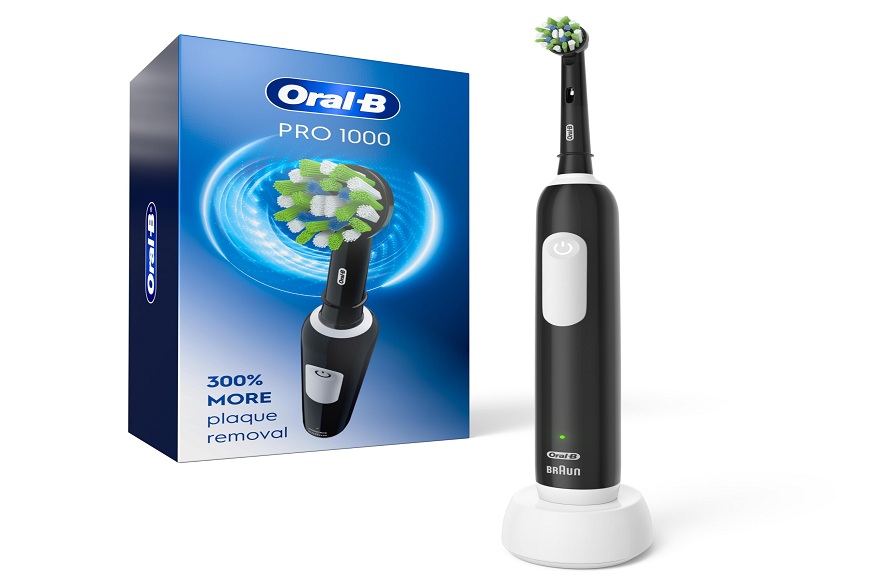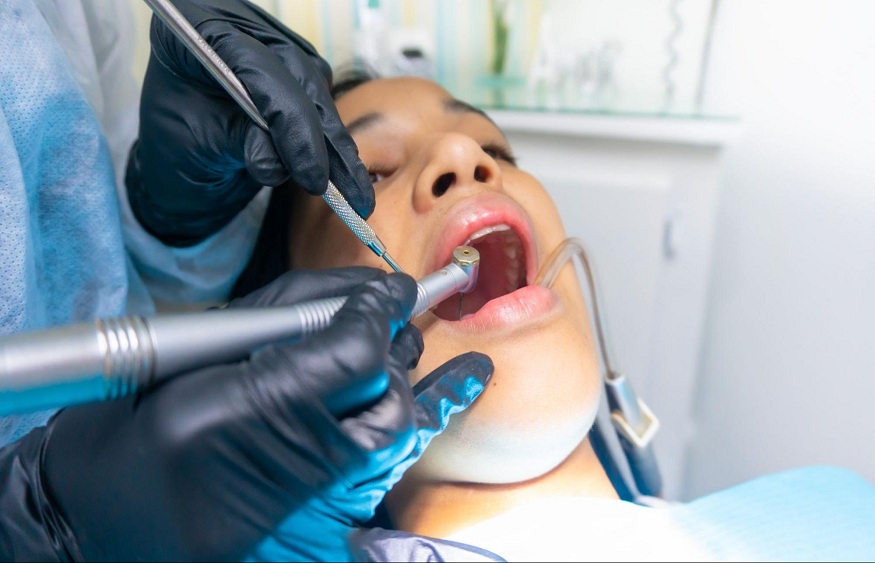Have you ever felt pain or discomfort after eating something cold or hot, like ice cream or soup? If that’s the case, you’re not alone.
You might have a cavity if you feel pain after eating hot or cold foods, but sensitive teeth are also a common cause of this kind of pain.
Tooth sensitivity, also called “dentin hypersensitivity,” is pain or discomfort in the teeth caused by certain stimuli, like hot or cold weather. Tooth sensitivity is also known as dentin hypersensitivity, which is a more technical word.
This problem could be short-term or long-term, and it could affect just one tooth, several teeth, or all of a person’s teeth.
Sensitive teeth can be caused by a number of things, but most of the time they can be fixed quickly by making changes to how you care for your teeth and gums.
What is teeth sensitivity?
The dentin, which is the layer underneath your teeth, can sometimes become uncovered. This can make your teeth hurt.
This can be caused by erosion, which is also called “wear and tear,” or by gum recession, which is when the gum tissue around your teeth pulls away and shows the roots.
The roots of teeth don’t have the hard enamel that covers the rest of the tooth. Instead, they have thousands of tiny tubes that lead to the pulp in the middle of the tooth.
These dentinal tubules (or channels) are what allow things like hot, cold, or sweet foods to reach the nerve in your tooth, which is what makes you feel pain.
Sensitivity in the teeth and gums could also be a sign of something else wrong, like tooth decay, gum disease, or a broken tooth.
Cause of having a sensitive teeth
Here are some of the most common causes of sensitive teeth:
You use tooth-whitening toothpaste.
Some people are more sensitive to the chemicals that whiten teeth that are found in many types of toothpaste, while others don’t mind them at all.
If the chemicals in your toothpaste that make it whiter are making you feel bad, you might want to try a different brand.
Use of mouthwash
Some over-the-counter mouthwashes and rinses contain alcohol and other chemicals that can make your teeth more sensitive in the same way that whitening toothpaste can. This is especially important if you can already see your dentin.
You should instead use rinses without fluoride or just stop rinsing and focus on brushing and cleaning your teeth better.
Gum disease
Tooth sensitivity can be caused by receding gums, which is a normal part of getting older (especially if you haven’t been taking care of your teeth).
If the problem is caused by gum disease or gingivitis, your dentist will come up with a plan to treat the problem, and he or she may also suggest a process to seal your teeth.
You have excessive plaque
Plaque builds up after you eat, and you can get rid of it by brushing and flossing. When plaque builds up to a dangerous level, it can speed up the wearing down of tooth enamel.
Again, this can make your teeth more sensitive as their enamel goes away and they become less protected. The best way to fix this is to take good care of your teeth and visit your dentist at least once every six months for cleanings, or more often if necessary.
You’ve had a dental procedure
When you get a root canal, have a tooth pulled, or get a cap put on, it’s not unusual for the area to be sensitive.
If the symptoms don’t go away in a short amount of time, you might have an infection and need to reschedule your visit with the dentist.
Gum recession
Receding gums can expose the sensitive roots of the teeth, which are not covered by enamel and are more susceptible to pain and sensitivity.
This can be caused by a number of factors, including gum disease, brushing too hard, or aging.
Enamel erosion
The enamel is the hard, protective outer layer of the teeth. When the enamel becomes worn down, either due to acidic foods and drinks, or aggressive brushing, the underlying dentin layer of the teeth becomes exposed. This can cause tooth sensitivity.
Tooth decay
When cavities form in the teeth, they can cause pain and sensitivity, particularly if the decay has reached the inner pulp of the tooth. If left untreated, decay can also lead to more serious dental problems.
Grinding or clenching of teeth
Habitual teeth grinding or clenching, also known as bruxism, can wear down the enamel and expose the dentin, leading to sensitivity.
Excessive plaque buildup
Plaque is a sticky film of bacteria that forms on the teeth and gums. When plaque is not removed through proper brushing and flossing, it can harden into tartar, which can irritate the gums and lead to gum disease.
Gum disease can cause gum recession and expose the sensitive parts of the teeth, leading to sensitivity.
Use of certain medications
Some medications, such as blood pressure medications, can cause dry mouth, which can lead to tooth decay and sensitivity.
Additionally, chemotherapy and radiation therapy can cause oral side effects, including sensitivity.
Genetic factors
Some people may be more prone to tooth sensitivity due to genetic factors that affect the thickness of the enamel or the density of the dentin.
Nerve damage
Trauma or injury to the teeth, such as a chip or cracked tooth, can damage the nerves inside the teeth and cause sensitivity.
Sinus or ear infections
In some cases, tooth sensitivity may be a result of sinus or ear infections. The sinuses and ears share nerve pathways with the teeth, and infections in these areas can cause referred pain in the teeth.
Acidic foods and drinks
Consuming acidic foods and drinks, such as citrus fruits, vinegar, and soft drinks, can erode the enamel on the teeth and lead to sensitivity.
Dental trauma
Injuries to the teeth, such as a hard blow or fall, can cause tooth sensitivity, especially if the tooth becomes cracked or chipped.
Improper brushing technique
Brushing too hard or using a toothbrush with hard bristles can wear down the enamel and cause sensitivity. It’s important to use a soft-bristled toothbrush and brush gently in a circular motion.
Final words
If you are experiencing tooth sensitivity, it’s important to see a dentist who can determine the underlying cause and recommend appropriate treatment. Depending on the cause, treatments may include desensitizing toothpaste, fluoride treatments, dental fillings, or other dental procedures.
In some cases, lifestyle changes such as avoiding acidic foods and drinks or practicing better oral hygiene can help alleviate sensitivity.




